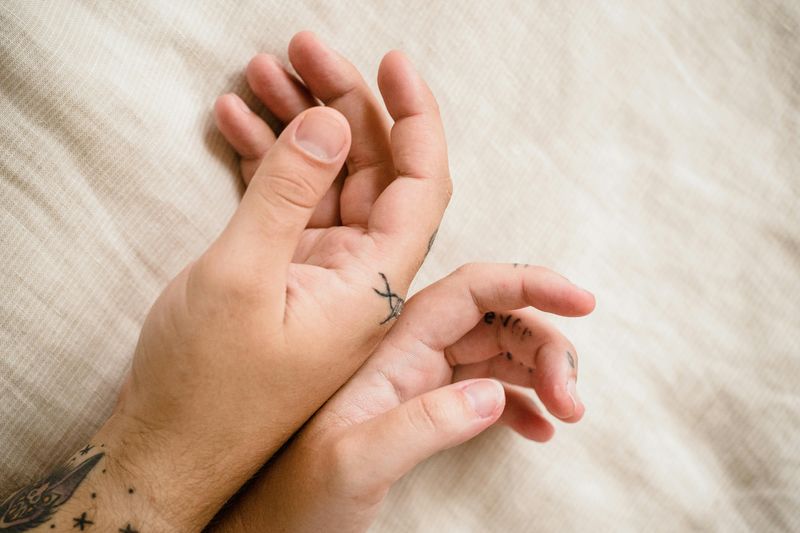12 Subtle Things People Do When They’re No Longer in Love

Love is a complex emotion, and its decline can be a gradual process marked by subtle changes. Relationships evolve, and sometimes, the signs are not as explicit as we might expect. Recognizing these signs can be difficult yet crucial for understanding the dynamics of the relationship. Often, these signs are not intentional and can occur without either partner realizing the underlying cause. This article explores twelve subtle indicators that love is fading in a relationship. By understanding these signs, individuals can better navigate their emotions and relationships, potentially addressing issues before they become more significant challenges.
1. They Stop Making Future Plans

The excitement of planning future trips or sharing dreams slowly evaporates. Conversations once filled with vibrant images of “someday” destinations and shared goals now feel empty. The anticipation of building a future together, once a core part of the relationship, diminishes without much realization.
Where plans once intertwined lives, now, discussions are limited to the immediate present. The absence of future planning can leave a relationship in a state of limbo. This lack of long-term vision may signal a deeper emotional distancing, reflecting a waning interest in a shared future.
2. Physical Affection Fades

Physical affection, once abundant and natural, starts to fade away. The warmth of a hug, the familiarity of holding hands, becomes a rarity. These gestures, once a daily part of life, now feel awkward or forced.
The decline in physical touch can create a palpable distance between partners. It symbolizes a shift in connection, where the comfort of closeness is replaced with an emotional gap. Without these small acts, the bonding that defines a loving relationship starts to dissolve.
3. Conversations Feel Surface-Level

Once filled with deep, meaningful dialogues, conversations now focus on the mundane. The exploration of feelings, dreams, and fears becomes rare. Instead, discussions revolve around day-to-day logistics, devoid of emotional depth.
This shift from profound to superficial conversations can erode the emotional connection. When partners stop sharing their inner thoughts, the relationship’s foundation begins to weaken, lacking the understanding that once bonded them closely.
4. They Prioritize Others Over You

The balance of priorities shifts subtly as other aspects of life begin to take precedence. Friends, hobbies, or work commitments start to overshadow the relationship. The partner who once occupied the central part of life now feels sidelined.
This change may not be intentional, but it reflects a decrease in emotional investment. As external interests grow, the time and energy once dedicated to each other diminishes, causing fractures in the relationship’s foundation.
5. Eye Contact Diminishes

The eyes, often seen as windows to the soul, start to look elsewhere. Lingering looks that once conveyed love and understanding become fleeting or absent. Eye contact, a fundamental part of communication, loses its intimacy.
Avoidance of eye contact can signal discomfort or detachment. It indicates a lack of interest in connecting on a deeper level, where facial expressions and unspoken words were once shared freely. This shift can signify growing emotional distance.
6. They Seem Irritated Easily

What was once endearing now becomes annoying. Small habits or quirks that used to bring joy now spark frustration. The patience once abundant in the relationship starts waning, replaced by easily triggered irritation.
This heightened sensitivity to minor annoyances can indicate underlying unresolved issues. It’s a sign that the affectionate lens through which partners once viewed each other has blurred, leading to a more critical perspective that can strain interactions.
7. They Don’t Ask About Your Day

The simple question, “How was your day?” fades into silence. Interest in each other’s daily experiences, feelings, and thoughts diminishes. What was once a daily ritual of connection now feels like an afterthought.
This lack of curiosity signals a decrease in emotional engagement. The communication gap grows, leaving partners feeling isolated. Without this basic exchange, the emotional intimacy that nourished the relationship begins to wane, creating a sense of disconnection.
8. They Stop Celebrating Your Wins

Achievements that once sparked joy and celebration now receive a lukewarm response. The enthusiasm for each other’s successes fades, leaving accomplishments feeling unnoticed or unimportant.
This change in support reflects an emotional detachment. Where applause and encouragement once thrived, now there’s a stark absence of shared joy. Without recognizing and celebrating each other’s milestones, the partnership loses a vital aspect of connection and growth.
9. They Pull Away During Conflict

Conflict, once an opportunity for growth, becomes a point of retreat. Instead of engaging and resolving issues, one or both partners withdraw emotionally. The willingness to work through problems diminishes.
Avoidance during conflict reflects a lack of investment in the relationship’s health. This emotional withdrawal leaves conflicts unresolved, leading to an accumulation of tension and misunderstanding, eroding the bond over time.
10. They’re Less Present

Physically together, yet miles apart emotionally. One partner may be present in body but not in mind, distracted by devices or lost in their thoughts. The shared moments, once filled with engagement, now seem empty.
This absence of presence weakens the emotional connection. It signifies a drifting apart where partners coexist but fail to truly connect, leaving a void where intimacy and understanding once thrived.
11. They Avoid Intimacy

The warmth of intimacy, both emotional and physical, begins to fade. Cuddling, once a comforting habit, becomes rare or nonexistent. Sexual intimacy also diminishes, leaving a gap in the relationship.
Avoiding intimacy reflects a deeper emotional chasm. Without these moments of closeness, the bond that sustains a loving relationship weakens. It indicates a withdrawal from the vulnerability and trust that intimacy requires, leading to a more superficial connection.
12. You Feel Like Roommates, Not Partners

The relationship transforms from a romantic partnership to a functional arrangement. The spark that once fueled connection seems to have dimmed, leaving only routine interactions.
This shift makes the relationship feel more like a shared living arrangement than a loving partnership. The loss of romance and excitement signifies a deeper emotional disconnection, where the shared dreams and joys have been replaced by mere coexistence.

Comments
Loading…